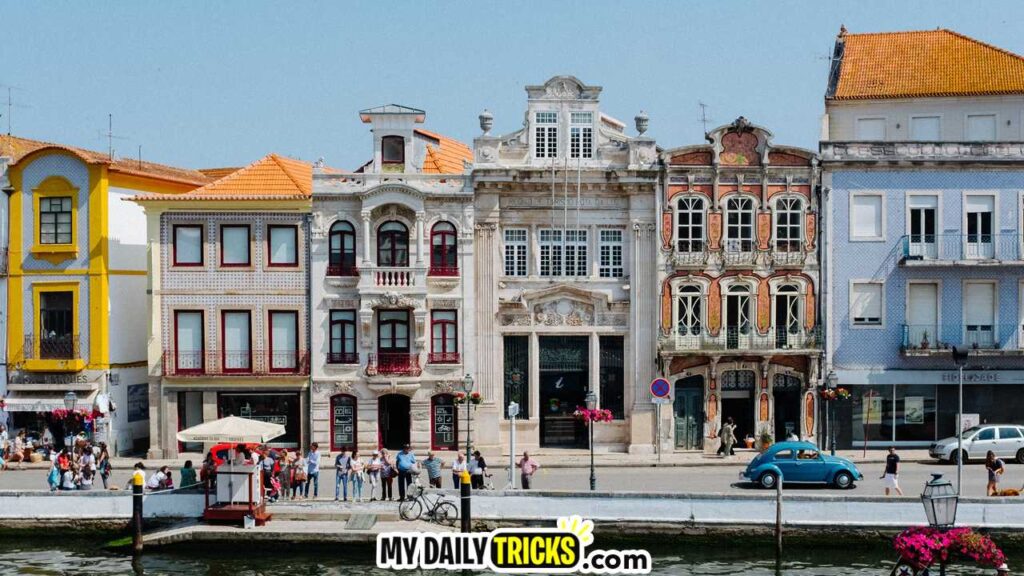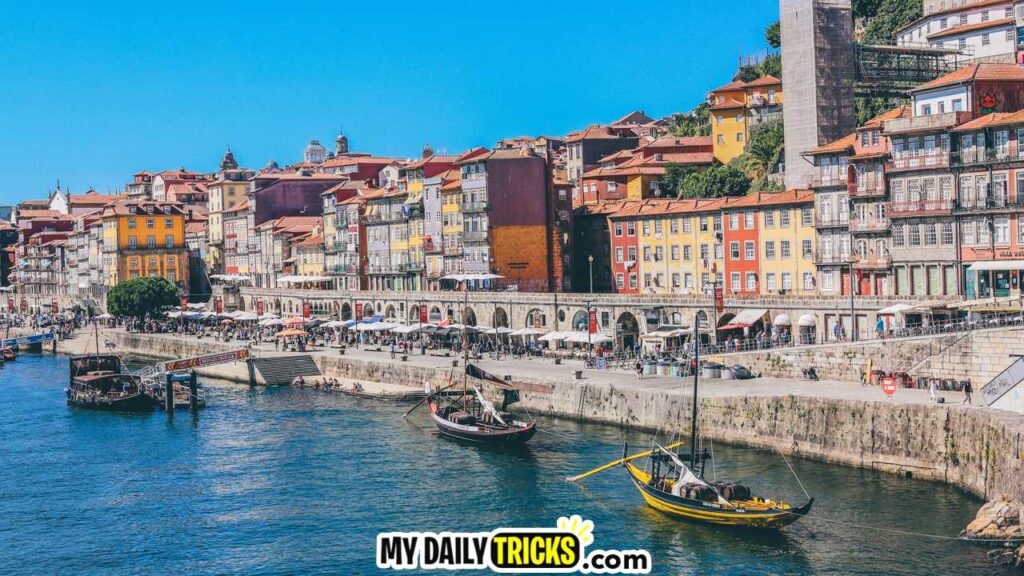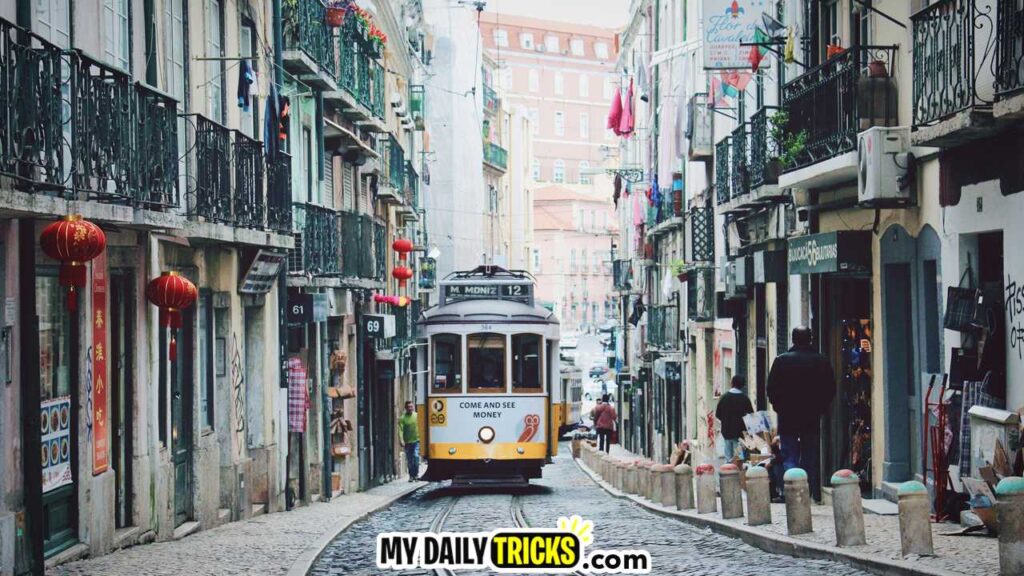Planning a trip to Portugal? Choosing the best time to visit is key to ensure a memorable experience. From stunning coastlines and historic cities to delicious cuisine and vibrant festivals, Portugal has something for everyone. Whether you prefer warm weather or want to avoid crowds, knowing the best time to travel can make a huge difference in your overall enjoyment.
Understanding Portugal’s Climate and Seasons

Portugal experiences a Mediterranean climate, with mild winters and hot summers. The country is divided into five regions, each with its own weather patterns. The North has a maritime climate, with cooler temperatures and more rainfall, while the South has a Mediterranean climate, characterized by hot, dry summers.
The peak tourist season typically falls between June and August when the weather is warm and sunny, and many festivals take place. However, this also means larger crowds and higher prices. If you’re looking for a quieter and more budget-friendly trip, consider visiting during the shoulder seasons of spring (March to May) or autumn (September to November). During these times, the weather is still pleasant, and you can explore popular attractions without the hordes of tourists.
The Advantages of Traveling During the Off-Peak Season

Traveling to Portugal during the off-peak season has several advantages. Firstly, you’ll have a more authentic experience as you’ll be able to interact with locals and immerse yourself in the Portuguese culture without the overwhelming presence of tourists. Additionally, you’ll enjoy shorter queues at popular tourist sites, allowing you to fully appreciate the country’s rich history and stunning architecture.
During the spring months, Portugal’s landscapes come alive with colorful flowers and blossoming trees. The weather during this time is perfect for outdoor activities such as hiking, cycling, and exploring the country’s national parks. Autumn, on the other hand, offers mild temperatures and picturesque scenery as the leaves change colors.
Moreover, traveling during the off-peak season means you’ll have a wider choice of accommodation options at lower prices. Whether you prefer luxury hotels or cozy guesthouses, you’ll be able to find great deals and save money on your trip.
The Benefits of Traveling During the Peak Season

While the peak season may bring larger crowds and higher prices, there are also many benefits to traveling to Portugal during this time. The warm weather and longer daylight hours allow for more outdoor activities and beach visits. You can soak up the sun on the beautiful beaches of the Algarve, explore the picturesque coastal towns, and indulge in delicious seafood.
The peak season is also when many festivals and events take place. From the São João Festival in Porto to the Festa de Santo António in Lisbon, you’ll have the opportunity to witness and participate in vibrant celebrations that showcase the rich cultural heritage of Portugal. These festivals are a feast for the senses, with traditional music, dancing, and mouthwatering street food.
Additionally, during the peak season, all tourist attractions and facilities are fully operational, ensuring that you can make the most of your visit. From guided tours of historic sites to boat trips along the Douro River, you’ll have a wide range of activities to choose from.
Considerations for Budget Travelers
If you’re traveling on a budget, it’s important to plan your trip to Portugal carefully. While the off-peak season offers lower prices for accommodation and flights, there are still ways to save money during the peak season.
Consider staying in guesthouses or apartments instead of hotels, as they often offer more affordable rates. Opt for local eateries and street food stalls to experience authentic Portuguese cuisine at a fraction of the cost of dining in upscale restaurants. Take advantage of public transportation, such as trains and buses, which are not only cost-effective but also allow you to experience the local way of life.
Another way to save money is to book your flights and accommodation well in advance. Many airlines and hotels offer early bird discounts, allowing you to secure the best deals.
Popular Events and Festivals in Portugal
Portugal is known for its lively festivals and events throughout the year. Here are some of the most popular ones:
- São João Festival: Held in Porto on the night of June 23rd, this festival celebrates the city’s patron saint with fireworks, traditional music, street parties, and the famous “martelinhos” (plastic hammers) used to gently tap people on the head.
- Festa de Santo António: Taking place in Lisbon on the night of June 12th, this festival honors the patron saint of the city. It features parades, traditional dances, and the famous “Manjerico” (basil plants) that people offer as gifts.
- Festa dos Tabuleiros: Held every four years in Tomar, this festival showcases the region’s cultural heritage through a procession of women wearing traditional costumes and carrying trays of bread and flowers on their heads.
- NOS Alive: One of Portugal’s biggest music festivals, NOS Alive takes place in Lisbon in July and features international artists across various genres, from rock and pop to electronic music.
- Festa da Flor: Held in Funchal, Madeira, this spring festival celebrates the island’s beautiful flowers with parades, floral displays, and live music.
Must-Visit Destinations in Portugal
Portugal is a country with diverse landscapes and enchanting cities. Here are some must-visit destinations:
- Lisbon: The capital city of Portugal, Lisbon is known for its historic neighborhoods, such as Alfama and Bairro Alto, stunning viewpoints, and iconic landmarks like the Belém Tower and Jerónimos Monastery.
- Porto: Famous for its port wine production, Porto is a charming city with colorful houses, narrow streets, and the iconic Dom Luís I Bridge. Don’t miss a visit to the historic port wine cellars in Vila Nova de Gaia.
- Algarve: Located in the south of Portugal, the Algarve is known for its golden beaches, crystal-clear waters, and picturesque coastal towns like Lagos, Albufeira, and Faro.
- Sintra: Just a short drive from Lisbon, Sintra is a fairytale-like town with enchanting palaces, such as the Pena Palace and Quinta da Regaleira, surrounded by lush forests and gardens.
- Madeira: This Portuguese archipelago is a paradise for nature lovers, with its stunning landscapes, rugged mountains, and levada walks. Visit Funchal, the capital city, and explore the Laurissilva Forest, a UNESCO World Heritage site.
Tips for Planning Your Trip to Portugal
To make the most of your trip to Portugal, here are some useful tips:
- Research the weather and pack accordingly. Portugal’s climate can vary, so be prepared for different weather conditions depending on the season and region you’re visiting.
- Learn a few basic Portuguese phrases. While many locals speak English, making an effort to communicate in Portuguese will be appreciated and can enhance your travel experience.
- Take advantage of public transportation. Portugal has an extensive network of trains and buses, making it easy to explore different regions of the country. Consider purchasing a travel pass for unlimited travel within a certain period.
- Try the local cuisine. Portugal is famous for its seafood, pastries, and wines. Don’t miss the chance to indulge in traditional dishes like bacalhau (salted codfish), pastéis de nata (custard tarts), and port wine.
- Respect the local customs and traditions. Portugal has a rich cultural heritage, and it’s important to be mindful of local customs. Dress modestly when visiting religious sites and be aware of any specific etiquette.
Packing Essentials for Traveling to Portugal
When packing for your trip to Portugal, consider bringing the following essentials:
- Comfortable walking shoes: Portugal’s cities are best explored on foot, so make sure to pack comfortable shoes for long walks.
- Lightweight clothing: Depending on the season, pack lightweight and breathable clothing, including shorts, t-shirts, dresses, and swimwear.
- Sunscreen and hat: Portugal’s sunny climate calls for adequate sun protection. Don’t forget to pack sunscreen with a high SPF and a wide-brimmed hat to shield yourself from the sun.
- Adapter and converter: Portugal uses Type F electrical outlets, so make sure to bring a universal adapter and converter for your electronic devices.
- Travel insurance: It’s always a good idea to have travel insurance that covers medical expenses and trip cancellation in case of unforeseen circumstances.
Conclusion: The Best Time to Travel to Portugal
In conclusion, the best time to travel to Portugal depends on your preferences and priorities. If you’re looking for warm weather, vibrant festivals, and a lively atmosphere, the peak season of June to August is ideal. However, if you prefer quieter surroundings, lower prices, and pleasant weather, consider visiting during the off-peak seasons of spring and autumn.
Regardless of the time you choose to visit, Portugal offers a wealth of experiences and attractions that are sure to leave you with unforgettable memories. From exploring historic cities to relaxing on beautiful beaches, indulging in delicious cuisine to immersing yourself in cultural festivals, Portugal has something for everyone. Plan your trip wisely, and discover the best time to travel to Portugal for your perfect vacation.



